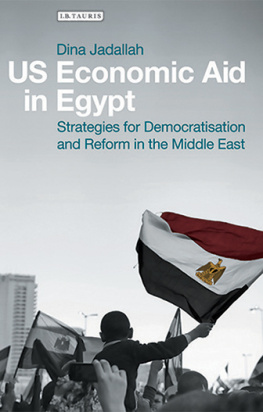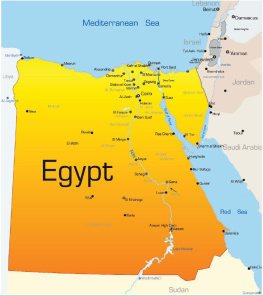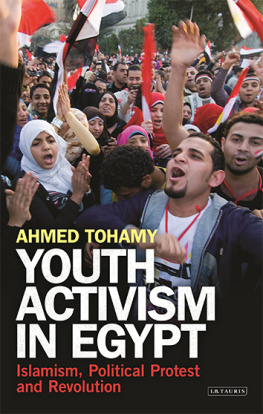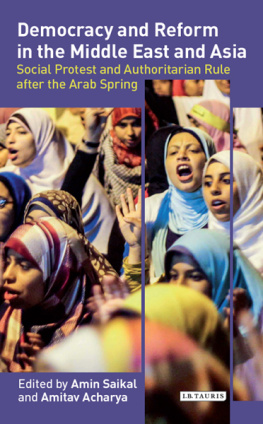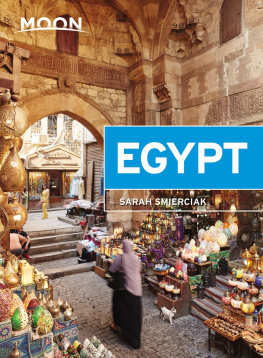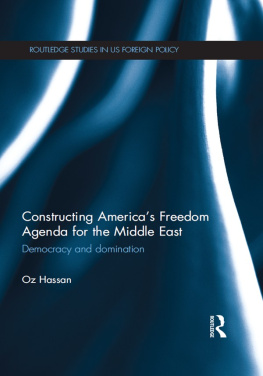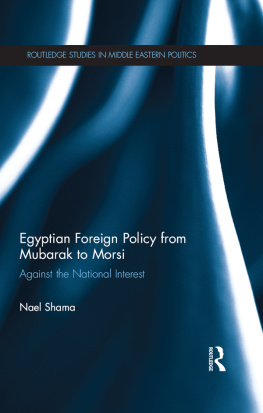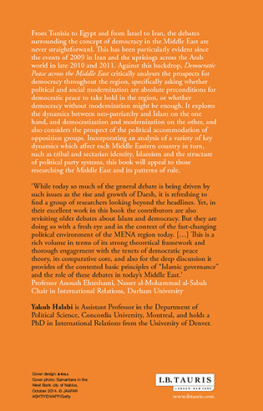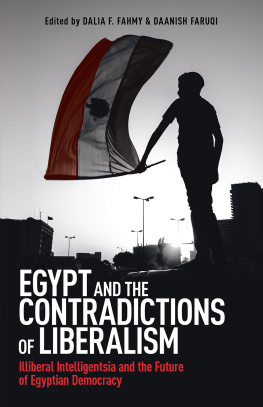Dina Jadallah is a lecturer of Arabic Language and Society in the Middle East Studies Program at the University of Southern California. She holds a PhD from the School of Near Eastern and North African Studies at the University of Arizona. She is the author of numerous articles dealing with political developments in the Arab world, which have appeared in Arab Studies Quarterly, Jadaliyya, Middle East Journal, Palestine Chronicle, Counterpunch, and Mathal/Mashal among others.
This is the most effective and most credible critique of US economic aid to Egypt. This book will be of great interest to all those fascinated by the true agenda of US foreign policy in the Middle East. It is thoroughly documented and persuasively argued, it constitutes a significant addition to the scholarly literature on Egypt and on US foreign policy. The author exercises a critical judgment on the economic program and is free of the conventional wisdom and clichs that fill the literature on the subject. It is the most important book on the subject in years, many years. Anyone who wishes to distinguish between fact and fiction in US foreign policy toward the Middle East should read this book.
Professor Asad AbuKhalil, Department of Political Science,
California State University, Stanislaus
This is an important contribution to understanding how a transnational coalition of US and Egyptian elites has channelled US aid toward a restructuring of the Egyptian state for geostrategic and economic objectives. In this process, US aid has served to enrich a minority of well-connected domestic and transnational actors while helping to maintain an oppressive, oligarchic and exploitative government that marginalizes Egyptian civil society. The contribution is timely, well-argued and filled with detailed empirical support. Highly recommended!
Ronald W. Cox, Professor and Associate Chair, Department of Politics and International Relations, Florida International University
US ECONOMIC AID
IN EGYPT
Strategies for Democratisation and Reform
in the Middle East
D INA J ADALLAH
Published in 2016 by
I.B.Tauris & Co. Ltd
London New York
www.ibtauris.com
Copyright 2016 Dina Jadallah
The right of Dina Jadallah to be identified as the author of this work has been asserted by the author in accordance with the Copyright, Designs and Patents Act 1988.
All rights reserved. Except for brief quotations in a review, this book, or any part thereof, may not be reproduced, stored in or introduced into a retrieval system, or transmitted, in any form or by any means, electronic, mechanical, photocopying, recording or otherwise, without the prior written permission of the publisher.
References to websites were correct at the time of writing.
International Library of Economics 9
ISBN: 978 1 78453 255 0
eISBN: 978 0 85772 891 3
ePDF: 978 0 85772 810 4
A full CIP record for this book is available from the British Library
A full CIP record is available from the Library of Congress
Library of Congress Catalog Card Number: available
This book is dedicated with the deepest love and appreciation to my parents, Samia and Mousa Jadallah.
LIST OF TABLES
Aid to Egypt 19952010, historical (US$ million)
Economic assistance to Egypt by the DOS and USAID, 200610 (US$)
US aid disbursement by sector, 200010 (US$)
Economic assistance by implementing partner, 20009 (US$)
General statistics, Egypt, 19952010
Imports and exports according to the Central Agency for Public Mobilization and Statistics, Egypt, 200110 (LE)
Privatised companies in Egypt, 198899 (US$ million)
Privatised companies in Egypt, 20008 (US$ million)
Egypt: exports to USA from 2001 to 2010 by commodity sectors (LE million)
Egypt: imports from USA from 2001 to 2010 by commodity sectors (LE)
US goods trade with Egypt (US$ billion)
US trade in goods with Egypt (nominal US$ million)
Egypt exports to Israel, 200110 by commodity sectors (LE million)
IsraelEgypt trade (US$ million)
Trade since the QIZ Protocol, value (US$ million)
Egypt: balance of payments, from 1990/91 to 19922010, selected data (US$ million)
Egypt's total exports and imports, 200110 (LE million)
Total Egypt exports, 19992011 (US$ billion)
Total Egypt imports, 19992011 (US$ billion)
QIZ data imports/exports (US$ million)
Egypt imports from Israel by commodity sectors, 200110 (LE million)
ACKNOWLEDGEMENTS
It is with deep humility that I express my appreciation and gratitude to the many people who helped me along the way and who provided insightful comments and constructive criticism on my book.
I wish to take this opportunity to acknowledge the generous contributions of my professors. Dr Yaseen Noorani threw me a life jacket when I sorely needed it, asked the hardest questions, spent lengthy hours reading my work and provided painstaking guidance. I benefited greatly from discussions with Dr David Gibbs, who kindly shared his considerable intellectual energy, time, knowledge and sharply critical observations on history and international relations. Dr Maha Nassar generously gave of her expertise on Middle East history and politics and took time out from her busy schedule to share incisive advice on the initial proposal as well as the finished book. I also wish to thank Dr Scott Lucas for his kindness, his valuable perspective and for his always welcome humour.
Before going to Egypt, Dr Mounzir Suleiman and Jafar Jafari helped me gain access to resources and to Egyptian writers and experts. Once in Egypt, friends and family were generous beyond words, with their time, their love, their laughter, their thought-provoking discussions, their encouragement and their contacts! I extend special thanks to Magda Kelada, Mervat Khairallah, Sherif Abd el-Khalek, Wafaa Mansour, Nazli Islam and Nevine Kashmiry. I am forever in their debt.
Developing a critical work that conveys the sophistication and insights of Egyptian debates regarding US economic aid would not have been possible without the help of many experts, writers, activists and economists. I am grateful for their magnanimous contributions to my knowledge and research. Dr Ahmed al-Sayyed al-Naggar very graciously agreed to meet me without a prior appointment, then proceeded to share his invaluable critical analyses of Egyptian economic issues, including the uses and abuses of economic reforms. Dr Imad Gad directed me to the best resources on Egyptian debate regarding relations with Israel. I wish to extend sincere thanks to Ahmed Abu Zeid for spending hours patiently explaining to me the processes of implementing (or not) business and economic reforms, of privatisation and of the institutionalised aspects of economic transformations. Dr Rifat Sayyed Ahmed discussed at great length the political, economic, cultural and ethical dimensions of Egyptian debates against Zionism. Dr Dina Shehata welcomed me into her home, shared her expert knowledge and directed me to valuable resources. Dr Hazem el-Beblawy very graciously invited me into his home and discussed the finer points of the economic relationships between the Mubarak regime, US aid and the challenges of economic reforms in Egypt. Dr Saad Eddin Ibrahim convivially and expertly discussed experiences during the uneven process of political reforms under Mubarak. I am grateful to Kamal Abbas and Kamal Khalil for informing me at length about labour and agricultural activism. I also wish to thank Ghada Shahbandar for her insights into human rights organisational efforts and other forms of activism, as well as for providing an invaluable critique of the actual execution of American aid-funded policies. And, I am grateful to Judge Tahani al-Gebali for her refreshing and sharply critical discussion of the contemporary political discourse on reforms and on Arabism.

